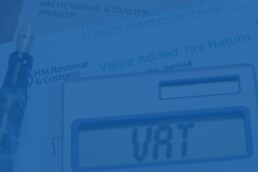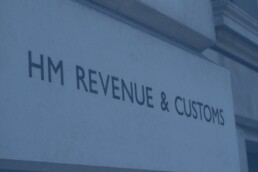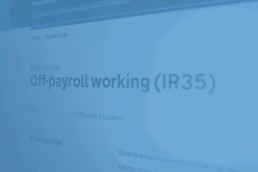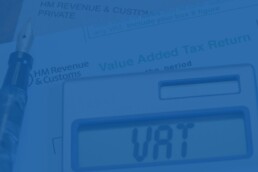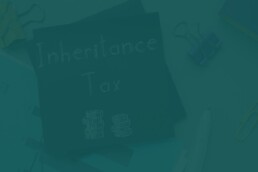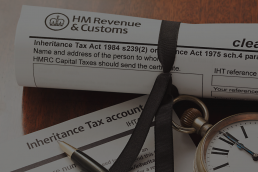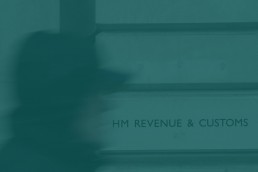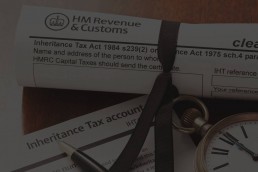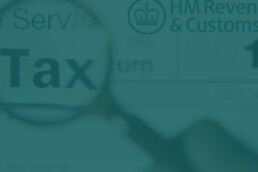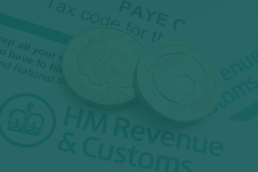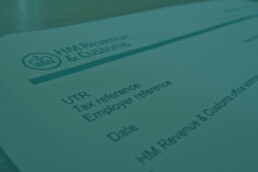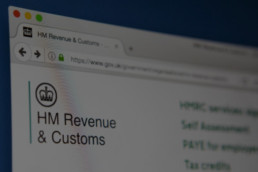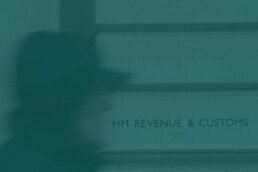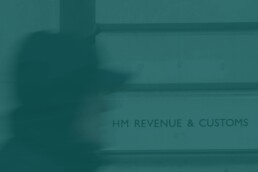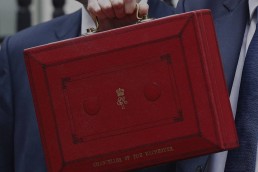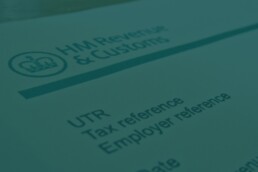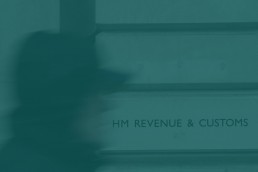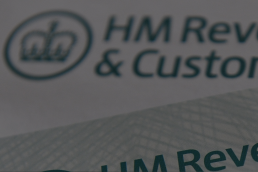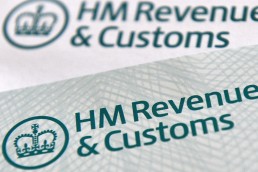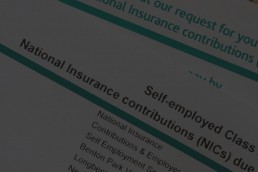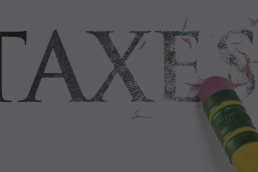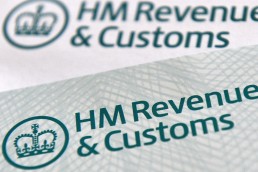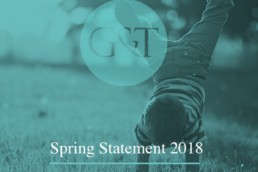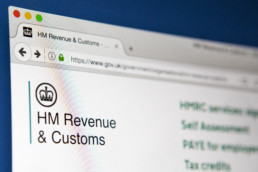New tax rules for individuals working via their own companies for a ?public authority?
From 6 April 2017, new tax rules will take effect for many individuals who provide their personal services via their own companies (PSCs) to an organisation which has been classified as a ?public authority?.
The effect of these rules, if they apply to you, will mean:
- the public authority (or an agency paying the PSC) will calculate a ?deemed payment? based on the fees the PSC has charged for the services of the individual
- generally, the entity that pays the PSC for the services must first deduct PAYE and employee National Insurance contributions (NICs) as if the deemed payment is a salary paid to an employee
- the paying entity will have to pay to HMRC not only the PAYE and NICs deducted from the deemed payment but also employer NICs on the deemed payment
- the net amount received by the PSC can be passed onto the individual without paying any further PAYE and NICs.
The practical effect of these rules is that you will no longer benefit from the potential tax advantages of receiving such income via your own company.
There may also be pressure from the public authority to renegotiate contracts due to the authority?s increased cost of employer NICs.
The new tax rules apply to amounts paid by the public authority on or after 6 April 2017 and so can affect current contracts.
What is a public sector organisation?
Public sector organisations include government departments and their executive agencies, many companies owned or controlled by the public sector, universities, local authorities, parish councils and the National Health Service.
Who will decide if the rules apply?
The public sector authority will decide. The authority needs to form an opinion as to whether, if the personal services of the individual were provided under a contract directly between the individual and themselves, the individual would be regarded as an employee of the authority. This is the same kind of employment status test based on case law that public bodies and agencies have to consider when they hire staff directly.
It is a matter of judgement whether the nature of and manner in which the services provided point to employment or self-employment. To ?assist the authority? HMRC has an Employment Status Service tool to ?help them make the decision?.
For reasons which are explained below, the public authority may be tempted to err on the side of employment particularly if the Employment Status Service tool indicates employment.
The link to the Employment Status Service tool is www.gov.uk/guidance/check-employment-status-for-tax.
Why have these rules been introduced?
The rules replicate many of the effects of the ?intermediaries? legislation enacted many years ago (often called the IR35 rules). This legislation requires, for example, a one person company to judge whether the IR35 rules apply. If IR35 applies the PSC would then treat the relevant fees received by the company as deemed payments to the worker and thus account for PAYE and NICs.
HMRC have found it difficult to enforce their view of the applicability of the IR35 legislation to many PSCs. Many view the risk of being ?caught? by IR35, and thus being required to pay PAYE and NICs, is outweighed by the benefit of company profits being paid out under a ?low salary, balance as dividends? regime.
The new legislation therefore shifts the responsibility to the public authority. This means that the risk of non-compliance falls onto the public authority. If the public authority decides the new rules do not apply they may have to have a protracted dispute with HMRC which ultimately may go to a Tax Tribunal. If the Tribunal decides against the public authority, the authority will have to pay over PAYE and NICs to HMRC, having already paid the gross fees to the PSC.
What can you do if you disagree with the public sector authority deducting PAYE and NICs?
Unfortunately there is no formal right of appeal to HMRC or the Tax Tribunals in the legislation by you or your company.
If it is a new contract entered into after 6 April 2017, the expectation would be that you and the authority would agree the treatment, and the fees charged by you, within the initial contract.
If it is an existing contract a discussion will need to take place with the public authority as to the reasons for their decision. The public authority must inform your PSC whether or not the contract falls within the new off-payroll rules. The public authority must reply to the written requests for the reasons why the authority reached a conclusion within 31 days of receiving the request.
You can use the tool to see if you obtain a different conclusion. If you obtain a result which confirms self-employment, we suggest you contact the public authority as soon as possible. You can also contact us to discuss the matter.
What is the tax effect on you?
The important point to appreciate is that you will be treated in tax terms as an employee of the entity that pays the PSC for your services. So if a contract ends during the 2017/18 tax year, the paying entity will send you a P45 showing the total deemed payment and deductions for PAYE and NICs. If the contract extends over the 2017/18 tax year, the paying entity would issue a P60 to you showing the total payment and deductions in the 2017/18 tax year.
You will need to show the amounts on the P45 or P60 as an employment on the employment pages of your 2017/18 self assessment tax return.
The amounts of income tax recorded as paid by you on the P45 or P60 may well not be the correct amount of income tax payable by you. Please look at the first part of the example in the Appendix which illustrates how PAYE and NICs are deducted from the deemed payment by the paying entity.
The other important point to appreciate is that it is your company which is receiving the amounts from the paying entity. How can you extract such income tax efficiently? The proposed legislation introduces special rules to allow you to do so.
What procedures does your PSC need to follow if deemed payments are received?
The PSC will report the net deemed payment as income subject to corporation tax. To the extent that it passes on the deemed payment to you it will get an equivalent deduction from its income subject to tax. So if it pays the full net payment to you, there will be no corporation tax charge on that income. However there may be timing issues if the amounts are not paid to you before the end of your PSC?s accounting period.
Please see the second part of the example in the Appendix which illustrates the procedures your PSC will take in passing the net deemed payment to you.
What if your company has other contracts hiring out your personal services?
Nothing has changed in respect of contracts your company has with private sector clients. The possible application of IR35 needs to be considered but there is no change in the law regarding IR35. If private sector contracts are not caught by IR35, we will help you decide on an appropriate profit extraction strategy for the profit from these contracts. In broad terms, it will often be beneficial to take these profits as dividends as the income from the public sector work will already be treated as your employment income.
Income tax repayments may be due to you as you may have not received the benefit of your personal tax allowance.
Current status of the public sector rules
This letter is based on the Finance Bill 2017 and related guidance from HMRC. Some of the detail in the legislation may be amended in the course of its eventual enactment in the Finance Act 2017 (expected enactment date is early July).
How we can help
We can help you decide whether to discuss the operation of the proposed legislation with the public authority. We can also help you decide on an appropriate profit extraction strategy for the profit from private sector contracts.
If you have any queries, please do not hesitate to contact us.
Related Posts
November 27, 2025
December 2025 Q&As
November 27, 2025
Should you pay VAT when joining a partnership?
November 27, 2025
Tax savings for new landlords
November 27, 2025
Keep your capital and still save IHT
November 27, 2025
Maximising tax relief on finance costs
November 27, 2025
Autumn Budget 2025: losers and losers?
November 25, 2025
Static company car advisory fuel rates
November 21, 2025
Tax trap for working pensioners
November 20, 2025
New HMRC guidance on winter fuel payments
November 18, 2025
Special payroll deadline for Christmas
November 13, 2025
How to improve your state pension
November 11, 2025
Timing CGT losses
November 6, 2025
November 2025 Q&As
November 6, 2025
VAT on the surrender of a lease
November 6, 2025
Tax-saving opportunities when moving premises
November 6, 2025
Moving back in with parents to save IHT
November 6, 2025
Reducing the cost of a second company car
November 3, 2025
Weekend November PAYE deadline
October 28, 2025
Are IHT changes coming?
October 23, 2025
Can flipping properties create unwelcome tax bill?
October 21, 2025
New payment process goes live
October 16, 2025
Company cars – is leasing a (tax) trick or treat?
October 14, 2025
How to apportion advisory mileage rates for EVs
October 8, 2025
October 2025 Q&As
October 8, 2025
Is a SIM card exempt for tax purposes?
October 8, 2025
Treat yourself to a tax-free meal on the company
October 8, 2025
Capital gains on mixed use property
October 2, 2025
When does sponsorship become advertising?
September 30, 2025
HMRC to raid bank accounts for unpaid tax
September 26, 2025
Frequent changes of company car
September 22, 2025
HMRC getting tougher on umbrella companies
September 18, 2025
Company sale – tax-saving strategy for owner managers
September 16, 2025
In-year relief claim? Prove it
September 15, 2025
Form 652 withdrawn by HMRC
September 11, 2025
Maximise tax relief for bad debts
September 9, 2025
Latest advisory fuel rates for company cars
September 5, 2025
Online time-to-pay now available for more simple assessment users
September 1, 2025
September 2025 Q&As
September 1, 2025
Loss relief and the transfer of trade to a business
September 1, 2025
Minimising the tax bill on investment bonds
September 1, 2025
Exchanging a loan for shares in a company
September 1, 2025
Too late to claim the AIA for equipment?
August 22, 2025
Advice for a first VAT return
August 18, 2025
Was a company buyback of EIS shares tax avoidance?
August 13, 2025
Accelerate tax relief for the cost of equipment
August 11, 2025
Avoid the trading allowance trap
August 8, 2025
Residence nil rate band – no home, no problem
August 4, 2025
August 2025 Q&As
August 4, 2025
Dodging a VAT trap when selling business assets
August 3, 2025
Tax trouble for charitable gifts
August 3, 2025
Boost tax relief for your business travel
July 30, 2025
Making Tax Digital for corporation tax scrapped
July 28, 2025
Change to IHT on pensions proposals
July 23, 2025
Class 2 NI problems to continue beyond summer
July 16, 2025
Beware credit card avoidance scheme
July 15, 2025
Book a family holiday on the company?
July 10, 2025
HMRC scrutinising directors’ loans
July 2, 2025
July 2025 Q&As
July 2, 2025
Tax relief for travel when working abroad
July 2, 2025
Is an OpRA VATable?
June 27, 2025
Loan written off: are you in HMRC’s crosshairs?
June 20, 2025
Cutting the cost of a company car
June 16, 2025
Errors in HMRC 2024/25 tax calculations
June 9, 2025
How soon should you register for VAT?
June 5, 2025
Homeworking – is there a VAT problem?
June 4, 2025
Class 2 NI demands being sent in error
June 2, 2025
June 2025 Q&As
June 2, 2025
Selling your business – avoiding a tax clawback
June 2, 2025
Are advance expenses a loan or taxable income?
June 2, 2025
Overdoing dividends can cost you extra tax
May 21, 2025
Reducing tax on residential property gains
May 19, 2025
New PAYE procedure being overlooked
May 16, 2025
Navigating the discount card VAT minefield
May 14, 2025
Director shareholders must disclose dividends
May 12, 2025
What’s a trivial benefit worth to employers?
May 1, 2025
May 2025 Q&As
May 1, 2025
IHT or income tax – take your pick
May 1, 2025
Cash accounting and its limitations?
May 1, 2025
Don’t pay HMRC penalties, suspend them
April 29, 2025
Income splitting – tackling the practical issue
April 24, 2025
Selling your business premises – a VAT trap?
April 22, 2025
Small businesses within MTD sights
April 16, 2025
How to pay a tax-efficient golden handshake
April 14, 2025
Permanent increase to penalty interest rates
April 11, 2025
HMRC pauses some refund claims for agents
April 9, 2025
New limit for reporting trading income
April 1, 2025
April 2025 Q&As
April 1, 2025
Extend your home’s capital gains tax exemption
April 1, 2025
Tax claims – how late is too late?
April 1, 2025
Companies forced to pay to file accounts
March 31, 2025
Woodlands – your next business investment?
March 27, 2025
Hidden MTD news in Spring Statement documents
March 20, 2025
HMRC MTD ITSA webinar – worth a look?
March 19, 2025
Relaxation of self-assessment threshold
March 13, 2025
HMRC and Companies House to scrap free filing services
March 10, 2025
Recycling your pension fund to finance your business
March 3, 2025
March 2025 Q&As
March 3, 2025
Private use of work-related accommodation
March 3, 2025
Reduce tax on gains with EIS incentives
March 3, 2025
MTD for income tax – what’s new?
March 3, 2025
AI being used in tax scams?
February 23, 2025
Have your say on e-invoicing
February 21, 2025
Pension tax relief can now be claimed online
February 16, 2025
Late payment interest rates changed again
February 13, 2025
Directors’ bonuses – keeping tax to a minimum
February 10, 2025
No reduction to assessment due to lack of evidence
February 7, 2025
Self-employed set for penalty reprieve
February 3, 2025
February 2025 Q&As
February 3, 2025
Are employer pension contributions still worth it?
February 3, 2025
Is there a limit on tax relief for travel expenses?
February 3, 2025
Administering estates – avoiding HMRC’s CGT trap
February 3, 2025
Income shifting – a tax trap
January 28, 2025
Chancellor set to tone down non-dom reform?
January 24, 2025
HMRC relaxes MTD rules for joint property owners
January 23, 2025
HMRC deliberately cutting off calls?
January 21, 2025
Extracting extra income from your company
January 17, 2025
Russian hedge fund manager loses £484k SDLT case
January 13, 2025
MTD ITSA – another step closer
January 10, 2025
New disclosure facility for R&D claims
January 8, 2025
HMRC chief urges thousands to check NI record
January 7, 2025
Single sales with multiple supplies
January 3, 2025
January 2025 Q&As
January 3, 2025
Fuel for company cars – avoiding a common trap
January 3, 2025
Tax-efficient pension income
January 3, 2025
How to make BADR good
January 3, 2025
How to clear your director’s loan account
December 20, 2024
Maximising VAT savings for FRS
December 17, 2024
Could you be taxed on a gift?
December 13, 2024
Scottish Budget confirms bands and rates for 2025/26
December 11, 2024
Overlap relief calculator launched
December 10, 2024
Harry Potter star loses tax battle
December 6, 2024
Don’t forget seasonal workers’ pension rights
December 4, 2024
December 2024 Q&As
December 4, 2024
Don’t overlook reclaiming VAT for EU expenses
December 4, 2024
Private residence relief – is it transferable to your spouse?
December 4, 2024
Can a simple interest swap save tax?
December 4, 2024
Tax pros and cons of business mobiles
November 29, 2024
Latest advisory fuel rates for company car drivers
November 28, 2024
Have you paid enough tax on property profits?
November 27, 2024
Tighter rules for company loans
November 25, 2024
MTD ITSA guidance updated following Budget
November 19, 2024
How to increase the tax saving when splitting business profits
November 18, 2024
The Chancellor’s hidden Budget
November 14, 2024
How can you secure gross payment status?
November 12, 2024
HMRC to reduce late payment interest
October 31, 2024
November 2024 Q&As
October 31, 2024
Pay rises for staff – a tax-efficient alternative
October 31, 2024
When is a company car not taxable?
October 31, 2024
Freelance work – the travel expenses tax trap for contractors
October 31, 2024
Spread the tax cost of selling your company
October 31, 2024
Budget at a glance
October 30, 2024
When is an option to tax advantageous?
October 28, 2024
MRC launches MTD ITSA toolkit
October 25, 2024
Tax relief for loss-making companies
October 24, 2024
On your (e)bike – cycle to work scheme
October 22, 2024
Timing dividends to delay or reduce tax
October 18, 2024
Job-related gifts – what’s the tax position?
October 17, 2024
Proof of employment expenses now required
October 14, 2024
Changing the VAT status of a property
October 10, 2024
HMRC expands agent-related services
October 1, 2024
October 2024 Q&As
October 1, 2024
Investment bond income tax trap
October 1, 2024
Dodging the double IR35 charge
October 1, 2024
Tax planning for landlords of commercial property
October 1, 2024
Calculating the AIA if you own more than one business
September 27, 2024
Tribunal denies fishy business property relief claim
September 26, 2024
Losses on CT returns may be incorrect
September 23, 2024
Workaround for botched HMRC student loan repayment calculations
September 19, 2024
Dodge the tax trap for jointly owned property
September 18, 2024
If you owe tax for 2023/24 act now to avoid a fine
September 16, 2024
Why file early?
September 12, 2024
EIS and VCT extended for ten years
September 9, 2024
Beware of Sunday payment deadline this month
September 6, 2024
Latest advisory fuel rates for company car drivers
September 2, 2024
September 2024 Q&As
September 2, 2024
Selling assets – navigating the tricky rules for flat rate VAT
September 2, 2024
Company v personal capital allowances
September 2, 2024
Reduce tax on your shared company car
September 2, 2024
Are you missing out on pension tax relief?
August 30, 2024
Save IHT with gifts to charity
August 27, 2024
Ending a trust tax efficiently
August 23, 2024
Latest crackdown targets animal breeders
August 21, 2024
Improvement and finance losses and how to claim them
August 20, 2024
Unpaid tax from cryptocurrency transactions targeted
August 14, 2024
HMRC cuts late payment interest following base rate changes
August 1, 2024
August 2024 Q&As
August 1, 2024
Limited cost trader – managing purchases tax efficiently
August 1, 2024
Incorporate your business tax efficiently
August 1, 2024
How to make salary sacrifice successful
August 1, 2024
Company or personal capital allowance?
July 30, 2024
When can ADR be used to resolve a tax dispute?
July 25, 2024
Tax and NI planning for multiple directorships
July 24, 2024
Benchmark subsistence rates – are they worth it?
July 23, 2024
New online VAT registration tool
July 19, 2024
Sale of old equipment – is it VATable?
July 17, 2024
Form P1000 now available digitally
July 15, 2024
Why your tax code is now more important than ever
July 12, 2024
Second payment on account deadline approaching
July 11, 2024
Self-assessment 2023/24 – what’s new?
July 8, 2024
Taxpayer victory bucks trend in SDLT row
July 5, 2024
P11D filing deadline looming
July 2, 2024
Class 2 NI problems continue
June 30, 2024
July 2024 Q&As
June 30, 2024
Pros and cons of self-generated VAT invoices
June 28, 2024
Is private use of a pool car taxable?
June 27, 2024
Enforced migration to Universal Credit
June 25, 2024
Company loan v company credit card
June 21, 2024
The trading allowance – something for nothing?
June 20, 2024
Salary advances: change to reporting rules
June 18, 2024
New student loan procedure
June 14, 2024
What do the main parties intend to do with tax?
June 12, 2024
VAT and personalised number plates
May 31, 2024
June 2024 Q&As
May 31, 2024
Save tax with pedal power
May 31, 2024
Tax breaks for renting a room
May 31, 2024
Clear a director’s loan tax efficiently
May 29, 2024
Creating a home office tax efficiently
May 24, 2024
No simple trading test for holiday let landlords
May 23, 2024
Don’t overlook the P60 deadline
May 17, 2024
The IHT exemption that HMRC hides
May 10, 2024
Rogue refunds of Class 2 NI due to HMRC failure
May 9, 2024
Make personal expenses tax efficient
May 2, 2024
May 2024 Q&As
May 2, 2024
Tax breaks for work-related training
April 30, 2024
Investing in woodlands – what are your options?
April 26, 2024
The latest on pension lifetime limits
April 25, 2024
New guidance on commuting expenses for hybrid workers
April 23, 2024
The tax advantages of benefits in kind
April 19, 2024
Did MP dodge capital gains tax?
April 18, 2024
Deadline for child benefit tax
April 16, 2024
Celebrating a company milestone and the tax consequences
April 12, 2024
Improving cash flow to help pay corporation tax bill
April 11, 2024
Guidance for merged R&D scheme published
April 9, 2024
Have you underclaimed your expenses?
April 3, 2024
April 2024 Q&As
April 3, 2024
Alternative ways to challenge HMRC
April 3, 2024
VAT on staff gifts – what do you need to know?
April 3, 2024
Back-door company loans – is there a problem?
April 3, 2024
IHT exemptions – when and how to use them
March 28, 2024
Make your mortgage interest tax deductible
March 27, 2024
ISA limits – what’s the latest?
March 26, 2024
Leasing cars – what are the VAT pros and cons?
March 22, 2024
HMRC U-turn on helpline closures
March 20, 2024
Popular helplines to be severely restricted permanently
March 18, 2024
Company closure – what happens to shareholder loans?
March 13, 2024
Revised guidance causing problems for LLP members
March 12, 2024
Threshold tax and benefit traps on families
March 8, 2024
New MTD trial launches soon
March 7, 2024
Budget delivers on most predictions
February 29, 2024
Charitable gifts that come with a tax cost
February 29, 2024
Charge your electric vehicle tax free
February 29, 2024
End of tax year – maximising your IHT exemptions
February 29, 2024
March 2024 Q&As
February 29, 2024
How to make rent-free periods tax efficient
February 28, 2024
Advisory fuel rates from 1 March 2024 published
February 27, 2024
Are you ready for cash basis by default?
February 26, 2024
CGT allowance cut: options
February 23, 2024
Pressure builds on cryptoasset owners
January 23, 2024
How to provide staff uniforms tax efficiently
January 19, 2024
P11D filing to end
January 18, 2024
PAYE compliance check – what are your rights?
January 16, 2024
HMRC reminds cryptoasset holders of tax obligations
January 12, 2024
Online side hustlers to feel HMRC’s wrath?
January 11, 2024
Time to switch to cash accounting?
January 8, 2024
Child benefit goes digital
January 3, 2024
January 2024 Q&As
January 3, 2024
How to be VAT efficient when selling property
January 3, 2024
Extra IHT relief for business owners
January 2, 2024
Capital allowances – company or shareholder ownership?
January 2, 2024
How can employers reduce staff costs with salary sacrifice
December 20, 2023
Changes to VAT zero rating imminent
December 18, 2023
Reclaiming VAT on business entertainment
December 15, 2023
Gid aid – ‘tis the season to be giving
December 14, 2023
Taxpayer uses AI to argue against penalty
December 12, 2023
Handling mixed-purpose travel expenses
December 8, 2023
Are camping pods “buildings” for capital allowances purposes?
December 7, 2023
Criteria for self-assessment are changing
December 4, 2023
December 2023 Q&As
December 4, 2023
How to maximise CGT loss relief
December 4, 2023
How to find unclaimed capital allowances
December 4, 2023
Tax relief for transferring a loss-making business
December 4, 2023
Board meeting travel expenses – tax deductible?
December 4, 2023
Latest advisory fuel rates published
November 29, 2023
Largest increase to the minimum wage
November 28, 2023
Tax reliefs and deductions – know your (time) limits!
November 24, 2023
HMRC declares tax planning option for landlords ineffective
November 23, 2023
Autumn Statement tax cuts focus on National Insurance
November 21, 2023
How to avoid VAT on management charges
November 17, 2023
Go electronic with your invoices
November 16, 2023
Missed the 31 October deadline?
November 14, 2023
HMRC’s new marriage allowance tool is flawed
November 10, 2023
HMRC scraps paper VAT registration
November 8, 2023
HMRC payroll reporting for Christmas
November 6, 2023
HMRC issues reminder of saving scheme
November 2, 2023
November 2023 Q&As
November 1, 2023
Do you need to own the vehicle to claim a mileage allowance?
November 1, 2023
Inherited assets – who’s liable for capital gains tax?
November 1, 2023
Which type of dividend should you pay?
November 1, 2023
Tax deductions for the cost of meals at home
November 1, 2023
Subcontractors – a VAT trap
October 30, 2023
Wedding venue left jilted at tribunal
October 27, 2023
Is your side-hustle taxable?
October 26, 2023
Setting tax-efficient salary – don’t be too quick on the draw
October 24, 2023
Paper filing deadline just days away
October 18, 2023
Friends and family finance for businesses
October 16, 2023
How to transfer a business to a company tax efficiently
October 13, 2023
HMRC launches remittance basis toolkit
October 11, 2023
Full expensing – is your cup overflowing with tax relief?
October 9, 2023
HMRC tips for prompt tax refunds
October 6, 2023
HMRC corrects guidance on company EV car charging
October 3, 2023
October 2023 Q&As
October 3, 2023
Is dividing a business for VAT registration permitted?
October 3, 2023
Furnished holiday letting – the in-between years
October 2, 2023
Small perks can add up to big tax and NI savings
October 2, 2023
Reduce the risk of IHT on your business assets
September 28, 2023
Cash in old certificates of tax deposit before it’s too late
September 26, 2023
Tribunal issues warning to deter doubtful SDLT claims
September 22, 2023
Remember, remember the 5th of October
September 20, 2023
HMRC’s warning over payroll errors
September 18, 2023
Lord Sugar falls foul of little-known residence rule
September 15, 2023
Can you legitimately dodge registration?
September 13, 2023
Tax breaks for Investment Zones
September 10, 2023
HMRC reopens self-assessment helpline
September 8, 2023
HMRC issues reminder about new R&D tax relief rules
September 6, 2023
Property rental, getting hitched and a tax trap
September 4, 2023
September 2023 Q&As
September 4, 2023
Are you overlooking capital allowances sundry costs
September 4, 2023
Mixed purpose travel costs and tax deductions
September 4, 2023
Who’s entitled to tax-free mileage allowances?
September 4, 2023
Avoiding tax trouble with earn outs
September 1, 2023
Late returns and payments consequences
August 30, 2023
When is “too late” for VAT claims?
August 24, 2023
HMRC seeks help to cut backlog
August 21, 2023
What’s the tax treatment of inherited pensions?
August 17, 2023
Will function be a taxable event?
August 15, 2023
Are clients due an NI refund after turbulent 2022/23?
August 11, 2023
Shortages take toll on HMRC services
August 10, 2023
Tax-efficient pension contributions for your partner
August 3, 2023
August 2023 Q&As
August 2, 2023
HMRC launches PAYE code tool
August 1, 2023
What are your VAT registration rights?
August 1, 2023
Selling your business – what costs are tax deductible?
August 1, 2023
Is your company missing out on tax relief for goodwill?
August 1, 2023
Business partner or employee?
July 31, 2023
Can you adjust a claim for loss relief?
July 28, 2023
Generating income from your SEIS investment
July 24, 2023
Latest guidance on correcting VAT errors
July 20, 2023
Simplified motor deductions – use with caution
July 19, 2023
Tax credits deadline and scam warning
July 17, 2023
Business gifts with a price tag
July 14, 2023
How much VAT can you reclaim on refurb costs?
July 3, 2023
July 2023 Q&As
July 3, 2023
Preserving the tax breaks for holiday homes
July 3, 2023
Maximising NI savings on trading losses
June 30, 2023
Further rise in HMRC interest rates confirmed
June 28, 2023
Exempt and taxable sales – simplify your VAT claims
June 27, 2023
Unwinding an option to tax a property
June 23, 2023
MTD scheme five times over initial budget
June 21, 2023
Important deadline for employers
June 20, 2023
How to push back against the CGT exemption cut
June 16, 2023
Deadline to catch up on NI contributions extended
June 14, 2023
Tax return requirement rises to £150k
June 13, 2023
HMRC resource shortage spreads to self-assessment
June 7, 2023
Latest AFRs released. What’s new?
May 31, 2023
June 2023 Q&As
May 31, 2023
Is there a tax trap for voluntary work?
May 31, 2023
Save big with small perks
May 30, 2023
Tax return threshold to rise in 2023/24
May 26, 2023
New CGT rules for separating couples not yet law
May 25, 2023
Avoiding the pre-trade loan interest trap
May 23, 2023
HMRC expands help texts service
May 19, 2023
New online service for declaring benefits
May 12, 2023
Tax-free cash in the attic
May 11, 2023
HMRC services disrupted by strikes
May 2, 2023
May 2023 Q&As
May 2, 2023
Loss relief – what’s the best way to go?
April 28, 2023
New fuel scale charge flat rates apply from next week
April 27, 2023
Don’t be confused by HMRC’s simple assessments
April 24, 2023
Tax-efficient way to make good use of dividends
April 20, 2023
HMRC cracking down on R&D claims
April 19, 2023
Online PSA service now available
April 18, 2023
Employment allowance – the best of both worlds
April 14, 2023
Payment of pension arrears could mean tax bill
April 12, 2023
Home office – the “exclusive use” factor
April 6, 2023
Match of the Day for HMRC?
April 4, 2023
HMRC pushes for more online filing
April 3, 2023
Tax and financing a potentially risky business
March 31, 2023
Yet another interest rate increase on the way
March 28, 2023
Budget yields pension changes
March 28, 2023
April 2023 Q&As
March 27, 2023
Compensating an employee for damage to personal items
March 27, 2023
Bail your company out of debt tax efficiently
March 27, 2023
Alternative ways to reward shareholders
March 27, 2023
How to acquire extra tax relief with your new premises
March 24, 2023
Cut to CGT exempt amount imminent
March 23, 2023
New HMRC guidance on mixed VAT rate supplies
March 22, 2023
New setback for MTD ITSA pilot
March 21, 2023
Social investment tax relief scheme to end soon
March 17, 2023
Companies to enjoy full expensing for capital items
March 16, 2023
Spring Budget 2023
March 15, 2023
Low-key Budget brings pensions tax reform
March 13, 2023
CGT trap when selling a home with a granny annexe
March 10, 2023
HMRC’s official rate of interest set to rise to 2.25%
March 7, 2023
Deadline for voluntary NI contributions extended
March 7, 2023
Last chance to use social investment scheme
March 3, 2023
Short window to secure cash-flow advantage
February 27, 2023
March 2023 Q&As
February 27, 2023
Does business property relief end when you retire?
February 27, 2023
Tax relief for company set-up costs
February 27, 2023
Maximising deductions for employer pension contributions
February 27, 2023
Now’s the time for tax year-end remuneration planning
February 24, 2023
Beware of HMRC delays when setting up PAYE direct debits
February 23, 2023
Self-assessment tax owing
February 20, 2023
HMRC shuts down repayment agent
February 20, 2023
Last chance to take advantage of 130% super-deduction
February 17, 2023
Don’t miss out on Tax-Free Childcare
February 16, 2023
Accounting for VAT on worthless stock
February 14, 2023
HMRC sends Valentine’s message to couples
February 10, 2023
Extended voluntary window – use it or lose it
February 8, 2023
Another hot summer to come? Keep yourself cool tax efficiently
February 7, 2023
Late payment interest rises again
February 2, 2023
HMRC explains timetable for moving to new service
February 1, 2023
HMRC confirms penalty for non-compliant trusts
January 30, 2023
Why consider paying voluntary Class 2 NI via tax returns?
January 27, 2023
Self-assessment and IR35 deadlines
January 24, 2023
February 2023 Q&As
January 24, 2023
Rugby pundit wins ruck with HMRC
January 22, 2023
Tax and personally owned equipment in the workplace
January 22, 2023
Can you claim tax breaks for your holiday home?
January 22, 2023
When can you be taxed for parking at work?
January 22, 2023
Maximise tax relief on your business loan
January 22, 2023
Tax deposit certificates need to be used this year
January 19, 2023
Make more from the SEIS changes
January 17, 2023
Option to tax changes from 1 February
January 13, 2023
Government crackdown on repayment agents
January 12, 2023
Tax-free mileage allowances for cycling
January 10, 2023
HMRC’s final warning on deferred VAT
January 6, 2023
Return filing season likely to be even busier than normal
January 5, 2023
HMRC makes changes to UK property returns
January 4, 2023
January 2023 Q&As
January 3, 2023
Investing for young children the tax-efficient way
January 3, 2023
Maximising VAT claims for car leasing payments
January 3, 2023
Does your business loan qualify for tax relief?
January 3, 2023
IHT savings for family maintenance
December 23, 2022
How to fund your business with pension savings
December 22, 2022
MTD ITSA delayed
December 16, 2022
HMRC makes further changes to Form P87
December 14, 2022
New VAT penalty regime to start in January 2023
December 13, 2022
Self-assessment deadlines looming
December 9, 2022
Inflation sees hike in vehicle-related benefit charges
December 8, 2022
Don’t miss key December deadline
December 7, 2022
Accelerate tax relief for plant and machinery
December 5, 2022
Coronavirus still causing HMRC issues
December 2, 2022
Avoiding HMRC’s business aggregation trap
December 1, 2022
Online advance assurance applications now available
November 29, 2022
Tax-efficient pension drawdown
November 25, 2022
Time to pay arrangements – now much easier to agree
November 24, 2022
Latest advisory rates bring welcome boost for EV owners
November 22, 2022
Tackling tax accounting rules for your property rental business
November 21, 2022
November 2022 Q&As
November 21, 2022
Sale or return – timing your VAT payments
November 21, 2022
Tax-efficient share buy-backs
November 21, 2022
Pensions – getting your company to pay
November 21, 2022
Sacrificing BADR to save income tax
November 18, 2022
A statement from the Chancellor Thursday 17 November
November 16, 2022
PAYE direct debits – interest application
November 15, 2022
Is HMRC’s new app any good?
November 11, 2022
Further increase to HMRC late payment interest
November 10, 2022
Special methods and increased VAT recovery?
November 9, 2022
Borrowing for your business – avoiding an IHT trap
November 8, 2022
HMRC targets “significant” shareholders
November 3, 2022
Don’t forget to declare coronavirus grants on tax returns
November 2, 2022
Is your payroll ready for the NI changes?
November 1, 2022
October 31 tax return deadline approaching fast
October 26, 2022
HMRC urges parents to use Tax-Free Childcare
October 24, 2022
HMRC launches new residence tool
October 24, 2022
Must all directors go on your payroll?
October 21, 2022
Final call for businesses not using MTD
October 19, 2022
Mini Budget 2022 – An Update
October 17, 2022
What’s left from the mini-Budget?
October 14, 2022
HMRC issues new fraud warning
October 13, 2022
Deeds of variation and retrospective IHT planning
October 10, 2022
October 2022 Q&As
October 10, 2022
Can a trust shelter company income for your children?
October 10, 2022
Reclaiming VAT on expenses paid by employees
October 10, 2022
Work after 65 – is there a pension trap?
October 7, 2022
Company loans – get them while they’re cheap
October 5, 2022
Chancellor rolls back the clock on IR35
October 4, 2022
Mini Budget 2022 – Updated
October 3, 2022
Chancellor U-turns on top rate of tax
September 30, 2022
Selling a company: saving tax using corporate bonds
September 29, 2022
HMRC to increase interest rates again
September 28, 2022
What are the tax advantages of electric vehicles?
September 26, 2022
Mini Budget 2022
September 24, 2022
Tax-cutting promises upheld in mini-Budget
September 22, 2022
HMRC updates online error reporting form
September 20, 2022
Variable payment plan goes live on 19 September
September 16, 2022
Government corrects position on AMAPs
September 15, 2022
Warning – HMRC’s tax calculations may contain errors!
September 14, 2022
Check tax rebate eligibility
September 11, 2022
August 2022 Q&As
September 11, 2022
Giving up a lease – a tax trap
September 9, 2022
Cashless repayments prevent a loan account charge
September 9, 2022
Can HMRC fish for information?
September 8, 2022
CJRS – HMRC closing in on employers
September 7, 2022
Should the gift be made directly or via a company?
September 5, 2022
MTD ITSA pilot expanded
September 2, 2022
HMRC appeals to accountants for MTD pilot candidates
August 31, 2022
HMRC wins £42k late filing penalty row
August 31, 2022
More flexibility for separating couples on the way
August 23, 2022
How to spot scam HMRC texts
August 19, 2022
Property gains reporting error
August 18, 2022
Is a gift to a company taxable?
August 15, 2022
Problems with HMRC’s car tool
August 9, 2022
Another rise in penalty interest rates looms
August 8, 2022
Add extra tax-free value to termination settlements
August 4, 2022
Fixing a property return anomaly
August 2, 2022
Travel expenses between UK and overseas workplace
August 1, 2022
Getting the most (tax relief) from gift aid
July 29, 2022
New VAT registration service from 1 August
July 27, 2022
Tax planning for multiple directorships
July 27, 2022
Correct procedure pays dividends
July 27, 2022
VAT and contractors’ expenses
July 27, 2022
July 2022 Q&As
July 14, 2022
Low level of cryptoasset tax treatment knowledge
July 12, 2022
Tax credit renewals
July 11, 2022
HMRC makes Government Gateway easier to access
July 6, 2022
Were food products zero-rated cakes?
June 30, 2022
Problems with HMRC’s online P11Ds
June 28, 2022
Install HMRC update to ensure correct NI deductions
June 27, 2022
Is your summer staff party tax and NI free?
June 24, 2022
Is there a special time limit on AIA claims?
June 22, 2022
Customs reporting service ends soon
June 16, 2022
Is frequently moving homes a business?
June 15, 2022
P11Ds – what’s new for 2021/22?
June 12, 2022
June 2022 Q&As
June 12, 2022
Dodging the trivial perks exemption trap
June 12, 2022
Get your capital allowances sooner rather than later
June 12, 2022
Minimising tax on double inheritances
June 12, 2022
Ukraine conflict: the effect on statutory residence
June 8, 2022
How to avoid tax on benefits by “making good”
June 7, 2022
Fraudsters target homebuyers with SDLT scam
June 1, 2022
New guidance on tips and gratuities
May 25, 2022
HMRC warns against sharing sign in details
May 24, 2022
Beware the tax and NI cost of temporary workers
May 20, 2022
Time to renew your tax credits
May 19, 2022
New version of Form 64-8 launches
May 18, 2022
Capital allowances to be reformed?
May 12, 2022
Pros and cons of employing family
May 10, 2022
May 2022 Q&As
May 10, 2022
Taxman chases overpaid SEISS grants
May 10, 2022
Dodging a penalty for a one-off mistake
May 10, 2022
IHT and the trouble with joint accounts
May 10, 2022
Benefits and expenses reporting
May 10, 2022
Radio presenter loses IR35 case
May 9, 2022
Interest rate rise – the HMRC implications
April 29, 2022
Paying more than HMRC’s advisory rates
April 28, 2022
Court of Appeal rules in contractors’ favour
April 27, 2022
Don’t miss out on tax reliefs
April 25, 2022
Are you ready for tax conditionality?
April 22, 2022
HMRC updates MTD ITSA guidance
April 21, 2022
HMRC starts to assess grant overpayments
April 19, 2022
Digitalisation reaches another rollout milestone
April 14, 2022
Tax incentives for assisting Ukrainian refugees
April 12, 2022
Business expense trap for companies and directors
April 11, 2022
Some relief from the NI increase
April 8, 2022
April 2022 Q&As
April 8, 2022
When to refuse HMRC’s demands for information
April 8, 2022
The tax deductions for trading with your company
April 8, 2022
Sell your shares to your spouse to save tax
April 7, 2022
Business use of your home – avoiding CGT traps
April 5, 2022
HMRC business risk review – staying safe
March 30, 2022
COVID tax concessions ending on 5 April
March 29, 2022
Property damage limitation through tax relief
March 25, 2022
March 2022 Q&As
March 25, 2022
Homeworking costs – can you reclaim VAT?
March 25, 2022
Boosting your pension tax-free cash
March 25, 2022
Can you pay mixed travel expenses tax free?
March 24, 2022
Spring Statement 2022
March 23, 2022
HMRC to reject expenses claims by letter from May 2022
March 22, 2022
Hijacked personal tax accounts
March 18, 2022
Managing an HMRC inspection
March 17, 2022
Simple ways to reduce IHT bills
March 15, 2022
Is there a tax cost to creating a home office?
March 11, 2022
HMRC to allow multiple penalty appeals
March 10, 2022
HMRC issues reminder about loss relief extension
March 8, 2022
An alternative way to reward staff
March 4, 2022
Nil rate band guidance updated
March 2, 2022
HMRC issues guidance on QR code scam
February 28, 2022
Cryptocurrency: a trap for remittance basis users
February 25, 2022
Does HMRC have the right to amend your tax code?
February 24, 2022
New VAT policy on termination payments
February 22, 2022
Another defeat for HMRC in TV presenter IR35 row
February 18, 2022
Omicron support deadline fast approaching
February 17, 2022
Planning consent VAT shock
February 15, 2022
What’s the right type of discounted gift scheme for you?
February 11, 2022
Auto-enrolment thresholds frozen again
February 10, 2022
HMRC increases late payment interest again
February 7, 2022
February 2022 Q&As
February 7, 2022
Saving VAT on your business start-up
February 7, 2022
Accountant’s fees for investigation – tax deductible?
February 7, 2022
Reduce tax payable on a loan from your company
February 7, 2022
Are you on HMRC’s HICBC radar?
February 3, 2022
Adding Strength to our Business
January 27, 2022
HMRC’s new P11D filing system
January 25, 2022
Government to close business rates loophole for holiday lets
January 20, 2022
HMRC provides further detail on late filing reprieve
January 17, 2022
HMRC delays new VAT penalty rules
January 14, 2022
New HMRC discovery powers will be retrospective
January 13, 2022
January 2022 Q&As
January 13, 2022
Tax-efficient gifts of shares in a family company
January 13, 2022
Maximising tax relief for plant and machinery
January 13, 2022
Get the VAT right when incorporating your business
January 13, 2022
Enterprise investment schemes for directors
January 11, 2022
New condition for joining MTD pilot
January 10, 2022
New year brings new Brexit rules into force
January 5, 2022
New guidance on property disposals
December 16, 2021
Warning to companies to report grants
December 12, 2021
December 2021 Q&As
December 12, 2021
Home help on the company payroll
December 12, 2021
Medical treatment on the company
December 12, 2021
Escaping the directors’ NI trap
December 12, 2021
Tax and NI cost of extra holiday
December 8, 2021
Trouble with paying self-assessment tax bills
December 5, 2021
Making your joint income tax efficient
December 3, 2021
Tax breaks for Freeports
December 2, 2021
Post Office payments temporary reprieve
November 30, 2021
Latest advisory fuel rates now available
November 26, 2021
HMRC issues warning to those filing tax returns
November 24, 2021
Are you too late to reclaim VAT?
November 21, 2021
November 2021 Q&As
November 21, 2021
Business property relief for letting businesses?
November 21, 2021
Selling goods or services to your staff?
November 21, 2021
A company-paid for pension for your spouse
November 21, 2021
Demerging your business – what’s the tax cost?
November 19, 2021
First Freeport tax sites designated
November 17, 2021
Higher tax rate on directors’ loans
November 15, 2021
Paying tax without a reference number
November 11, 2021
Christmas PAYE arrangements
November 9, 2021
Accessing your pension savings tax efficiently
November 5, 2021
HMRC’s cryptocurrency nudge letters
November 3, 2021
HMRC issues urgent warning to SEISS grant recipients
November 1, 2021
Should your company pay for private fuel?
October 28, 2021
Budget Report Autumn 2021
October 26, 2021
Cryptocurrency investors under HMRC scrutiny
October 25, 2021
HMRC issues reminder about early December pay dates
October 22, 2021
Do you need to file your tax return by the deadline?
October 20, 2021
Tax-free savings going unclaimed
October 18, 2021
How to maximise relief for CGT losses
October 14, 2021
Deregistering your business – what VAT is payable?
October 12, 2021
Health and social care levy impact
October 6, 2021
October 2021 Q&As
October 6, 2021
Not all pre-trading expenses are equal in HMRC’s eyes
October 6, 2021
Are you entitled to multiple employment allowances?
October 6, 2021
Tax and NI-free cash after transferring your business
October 6, 2021
How to pay off a director tax efficiently
October 6, 2021
VAT increase for some businesses
October 5, 2021
SDLT holiday is over
October 1, 2021
Tax hikes for 2022/23 confirmed
September 28, 2021
Cut your investment bonds tax bill
September 27, 2021
Government delays MTD for income tax and basis period reform
September 22, 2021
Easily avoid a life insurance tax trap
September 20, 2021
New auto-enrolment warnings from the regulator
September 15, 2021
Transferring your business to a company
September 14, 2021
When is selling land or buildings “trading”?
September 10, 2021
Government unpicks the pension triple lock
September 9, 2021
Late payment penalty rules made clear
September 8, 2021
NI rates hiked – how much more will you pay?
September 7, 2021
HMRC to stop paying certain benefits to Post Office accounts
September 6, 2021
September 2021 Q&As
September 6, 2021
Pay a higher price for mileage allowances
September 6, 2021
Accounting for VAT on third party services
September 6, 2021
Is your business better off claiming simplified expenses?
September 6, 2021
Trading with your company for tax-free cash
September 3, 2021
Furlough scheme: have you overclaimed employers’ NI?
September 1, 2021
Saving with company cars 2021/22
August 31, 2021
Tax-free pensions advice
August 27, 2021
Mitigating changes to basis period
August 20, 2021
Fifth SEISS grant – amended HMRC guidance
August 19, 2021
Discounts and incentives – the VAT implications
August 17, 2021
New reporting rules for digital platforms
August 16, 2021
Limited cost trader – managing purchases tax efficiently
August 11, 2021
MTD deadline accelerated
August 5, 2021
August 2021 Q&As
August 5, 2021
Is there a tax cost for charitable donations?
August 5, 2021
Rewarding loyal customers
August 5, 2021
Tax-efficient ways to pay for your partner’s pension
August 3, 2021
HMRC answers questions on 30-day CGT reporting
July 30, 2021
EIS or VCT – which is right for you?
July 26, 2021
Discounts and incentives – the VAT implications
July 23, 2021
LPC publishes report on NMW compliance
July 20, 2021
Gender pay gap – countdown to 2021 reporting
July 19, 2021
A tax-saving tip for incorporating your business
July 16, 2021
Is annual accounting for VAT worth considering?
July 14, 2021
Offsetting overpaid CGT
July 12, 2021
Taxing the SEISS – what’s the latest?
July 8, 2021
HMRC doubles up on SEISS tax
July 7, 2021
Grant 5 details under the SEISS announced
July 5, 2021
When is a CGT deferral cut short?
July 5, 2021
July 2021 Q&As
July 5, 2021
Is tax relief due on pre-trading expenses?
July 2, 2021
Why file your tax return early?
June 30, 2021
Keep-fit tax incentive for company owners
June 28, 2021
HMRC phases in new IT system
June 25, 2021
COVID tax easements summarised
June 23, 2021
Refund now, check later SDLT claims
June 22, 2021
Double check your P11Ds while there’s time
June 21, 2021
VAT on charging electric vehicles
June 18, 2021
All change on right to work checks
June 16, 2021
How to respond to an HMRC inspection
June 14, 2021
HMRC relaunches Agent Dedicated Line
June 11, 2021
Director banned for poor record keeping
June 10, 2021
VAT deadline imminent
June 4, 2021
June 2021 Q&As
June 4, 2021
Reclaim more VAT on car expenses
June 4, 2021
Third-party perks and P11Ds – whose job is it?
June 4, 2021
How to restructure a loan tax efficiently
June 2, 2021
Super-deduction extended
June 1, 2021
What’s the best way to repay a director’s loan?
May 28, 2021
Have P60s been sent?
May 27, 2021
New rate makes company loans cheap
May 26, 2021
MTD for corporation tax
May 24, 2021
HMRC warns of disrupted VAT payments
May 21, 2021
HMRC out of time to raise assessment
May 20, 2021
HMRC wins big in “tax on gifts” case
May 17, 2021
Shared parental pay and leave
May 14, 2021
Women’s state pension error – the tax position
May 13, 2021
Gary Lineker in status row with HMRC
May 11, 2021
Minimising tax on a shared company car
May 10, 2021
New off-payroll rules and PAYE reporting
May 7, 2021
May 2021 Q&As
May 7, 2021
Too late to investigate!
May 6, 2021
HMRC news for April
May 5, 2021
What’s new with pensions?
May 3, 2021
CIS and joint contracts – who pays the tax?
April 29, 2021
HMRC warns of SEISS email scam
April 28, 2021
Using stock-take to cut a client’s tax bill
April 27, 2021
Defer CGT payment on property
April 26, 2021
SEISS: fourth grant claims gateway now open
April 23, 2021
HMRC issues reminder about VAT penalty
April 22, 2021
New help for partially exempt businesses
April 21, 2021
Tighter rules for holiday home business rates
April 18, 2021
VAT penalty overhaul confirmed for 2022
April 16, 2021
Avoiding the CGT bed and breakfast anti-avoidance rules
April 15, 2021
Why fund your business from personal savings?
April 13, 2021
The benefits risk of company mobile phones
April 12, 2021
HMRC plans to make tax payable sooner
April 9, 2021
Furlough scheme fraud penalties
April 8, 2021
New tax year brings key changes
April 7, 2021
April 2021 Q&As
April 7, 2021
Reclaiming VAT for a promotional event
April 7, 2021
Claiming rent-a-room relief while you’re away
April 7, 2021
A director’s loan and change of accounting date
April 7, 2021
SDLT and transferring your business to a company
April 6, 2021
Trust registration deadline extended
March 31, 2021
Tax rises shunned – for now
March 30, 2021
Only two days left to avoid 5% penalty
March 26, 2021
New tax year, new tax code
March 25, 2021
Tax day announcements hint at system overhaul
March 23, 2021
NEW Covid Support Grant from your local council
March 22, 2021
Government import and export grant now available
March 19, 2021
Can you claim the tax-free property allowance?
March 17, 2021
HMRC loses high profile IR35 appeal case
March 16, 2021
COVID-19 and travel restrictions
March 15, 2021
Personal or company investment in woodlands
March 12, 2021
Remuneration strategies for the old and new tax years
March 10, 2021
HMRC warning over Class 2 NI
March 9, 2021
Dealing with Direct Earnings Attachments
March 5, 2021
Corporation tax hiked. But for which companies?
March 4, 2021
Budget Report 2021
March 3, 2021
March 2021 Q&As
March 3, 2021
Can you invest your pension fund in your business?
March 3, 2021
When is the right time to opt to tax a property?
March 3, 2021
The tax rights and wrongs of paying your partner
March 2, 2021
The tax year-end car mileage trap
March 1, 2021
Incorporation relief – is it always the best option?
February 26, 2021
Deferred VAT payment scheme launches
February 25, 2021
Capital allowances incentive for “green” cars extended
February 24, 2021
End of tax year PAYE procedures
February 23, 2021
Tax efficiency and savings: diversity in planning
February 21, 2021
More help with self-assessment tax bills
February 18, 2021
Tax-efficient gifts of shares to your grandchildren
February 17, 2021
Tax and your Green Homes Grant?
February 16, 2021
Getting your company to buy your home
February 14, 2021
Marriage allowance – HMRC unfairly refusing claims
February 11, 2021
Deferred VAT – what’s the latest?
February 8, 2021
NMW back on the radar
February 5, 2021
Is your payroll software up to date?
February 3, 2021
February 2021 Q&As
February 3, 2021
VAT and simultaneous supplies of goods and services
February 3, 2021
Can a director use the company to make a personal profit?
February 3, 2021
Tackling the tricky issue of PAYE and casual workers
February 3, 2021
Are you entitled to tax relief for training?
February 2, 2021
Off-payroll working – April deadline looms
February 1, 2021
Private residence relief: using case law to support claims
January 29, 2021
Tax and business interruption policies
January 28, 2021
Tax status of a second job
January 27, 2021
When are you required to issue a full VAT invoice?
January 26, 2021
Self-assessment late filing penalties cancelled
January 25, 2021
Postponed VAT accounting: practicalities
January 22, 2021
Tax due? Set up time to pay online
January 20, 2021
Just days left to claim third coronavirus business grant
January 19, 2021
Giving away company equipment
January 18, 2021
Cars – is a home electric charging point tax exempt?
January 15, 2021
No more delay to new reverse charge for builders
January 13, 2021
Sold your home – when do you need to report it to HMRC?
January 12, 2021
HMRC employment status tool trouble
January 8, 2021
Gender pay gap and furlough
January 7, 2021
January 2021 Q&As
January 7, 2021
Tax deductions for business start-up costs
January 7, 2021
Tax-efficient use of a company van
January 7, 2021
The tax pros and cons of alphabet shares
January 7, 2021
Has the deal changed your Brexit preparations?
December 28, 2020
Cycle to work conditions relaxed
December 23, 2020
Rates and thresholds for 2021/22
December 22, 2020
HMRC refuses to budge on filing deadline
December 18, 2020
Furlough scheme extended again
December 16, 2020
Cut in CO2 emissions thresholds for business cars
December 13, 2020
VAT – reducing the cost of moving home
December 11, 2020
New VAT number checking tool
December 8, 2020
Virtual Christmas – taxable?
December 7, 2020
HMRC gets tough on tax scheme ads
December 4, 2020
Using rent-a-room elections to save tax
December 4, 2020
Using a loan to reduce the tax on company cars
December 4, 2020
An inheritance tax-saving tip for married couples
December 4, 2020
Do interest payments on company loans save tax?
December 3, 2020
HMRC tightens CIS rules
December 1, 2020
Late payment spreading claims accepted to 31 December
November 26, 2020
Full details of third SEISS grant announced
November 26, 2020
HMRC launches new VAT deferral scheme
November 25, 2020
HMRC begins checking “Eat Out” payments
November 23, 2020
HMRC fishing for tax on property sales
November 20, 2020
Conditions for allowance relaxed
November 19, 2020
Are you liable to a penalty for making a mistake?
November 18, 2020
81 year old denied business property relief
November 17, 2020
Annual investment allowance extended to £1m for another year
November 16, 2020
HMRC going undercover
November 13, 2020
Local and national restrictions support grant fund update
November 13, 2020
CGT rate to double?
November 11, 2020
Covid-19 support grants for businesses
November 9, 2020
When are golden handshakes taxable?
November 6, 2020
CJRS extended to spring 2021
November 5, 2020
Chancellor extends furlough scheme to March
November 5, 2020
Further increase in coronavirus help for the self-employed
November 5, 2020
November 5 – when can you leave home?!
November 4, 2020
Feeding your workforce – avoiding a tax trap
November 3, 2020
November 2020 Q&As
November 3, 2020
Selling the family silver – how to minimise the tax bill
November 3, 2020
Reduce the VAT to increase your sales
November 3, 2020
Is entertaining a director ever tax deductible?
November 3, 2020
When can more than one mobile phone be exempt?
November 2, 2020
Coronavirus Job Retention Scheme extended
October 30, 2020
The Job Support Scheme: How can it help employers?
October 29, 2020
Tax-Free Childcare eligibility further extended
October 28, 2020
Don’t miss opportunities to claim now
October 26, 2020
COVID – Job Support Scheme Update
October 23, 2020
COVID – Additional funding for businesses
October 23, 2020
COVID – Self-employment grant cap doubled
October 21, 2020
When should you account for PAYE on your salary or bonus?
October 20, 2020
Transferring a company property to personal ownership
October 19, 2020
Received an SEISS grant? Check your inbox to avoid a penalty
October 16, 2020
Avoiding tax trouble with earn-out deals
October 15, 2020
Tax-efficient help for worried employees
October 13, 2020
Will your home office give you a tax headache?
October 13, 2020
Job Support Scheme expanded to help firms required to close
October 12, 2020
COVID-19 Support – Further guidance on business support schemes
October 9, 2020
Tax-efficient income from your company
October 6, 2020
October 2020 Q&As
October 6, 2020
What is a “going concern” for VAT purposes?
October 5, 2020
Kickstart for employers
October 5, 2020
What are your options for investing in another company?
October 5, 2020
Coronavirus pressures hits HMRC system
October 5, 2020
Maximising relief for terminal losses
October 5, 2020
When is a van a car?
October 1, 2020
Job Support Scheme
September 29, 2020
Business Bounce Back loan update
September 28, 2020
Self-Employment Income Support Scheme extended until April 2021
September 28, 2020
Temporary Reduced Rate of VAT
September 28, 2020
New Self Assessment Self-Serve Time To Pay Scheme
September 25, 2020
SEISS Grant Extension
September 25, 2020
Job Support Scheme – what does it really mean?
September 24, 2020
VAT repayment terms extended
September 23, 2020
An IHT break for employing your family
September 22, 2020
How far must you go to get a (tax) free meal?
September 21, 2020
HMRC overcomplicates 30-day CGT reporting for the digitally excluded
September 17, 2020
Expenditure was revenue not capital
September 17, 2020
HMRC and CJRS enforcement
September 15, 2020
New local lockdown payments
September 14, 2020
Further arrests in furlough payment fraud
September 11, 2020
You’ve deferred your tax – what next?
September 10, 2020
When can you divide your salary to save NI?
September 8, 2020
When is the best time to buy equipment for tax?
September 4, 2020
HMRC launch consultation on NIC holiday for veterans
September 4, 2020
Applying for a customs grant
September 4, 2020
Covid-19 support: SEISS second claim service open
September 4, 2020
September 2020 Q&As
September 4, 2020
Helping employees with cheap loans
September 1, 2020
Tribunal finds that ignorance of the law can be a reasonable excuse
August 24, 2020
An IHT trap found in most wills
August 14, 2020
What counts as a “going concern” for VAT purposes?
August 14, 2020
Can HMRC issue a tax bill if it discovers an error?
August 14, 2020
Is there a tax cost to losing a business tenant?
August 14, 2020
Minimising tax on staggered company share buy-backs
August 14, 2020
August 2020 Q&As
August 3, 2020
Tax-efficient incorporation of a loss-making business
July 31, 2020
Tax return following a delayed start to business
July 30, 2020
When is it too late for capital gains tax losses?
July 24, 2020
MTD dates for your diary
July 23, 2020
Restarting salary from your company
July 22, 2020
Pensions auto re-enrolment duties
July 21, 2020
Tackling financial crime
July 20, 2020
What is a reasonable excuse?
July 12, 2020
SEISS checks – are you ready?
July 12, 2020
Trouble with tax credits renewal
July 12, 2020
Summer statement – the tax measures
July 12, 2020
A Plan for Jobs – what’s to know?
July 9, 2020
COVID-19 Update
July 8, 2020
There’s more than coronavirus
July 7, 2020
July 2020 Q&As
July 7, 2020
Maximising tax deductions for your buy-to-let
July 7, 2020
Dodging compulsory VAT registration?
July 6, 2020
EMI tax relief for furloughed workers
July 3, 2020
Withdrawal charges cut until 2021
July 2, 2020
Can HMRC demand security from clients?
June 30, 2020
Using CGT losses efficiently
June 25, 2020
More time to claim SDLT refunds
June 24, 2020
Is there trouble ahead for pension savers?
June 23, 2020
HMRC to collect some tax debts sooner
June 12, 2020
Writing off an employee’s loan
June 11, 2020
End of a business and termination payments
June 9, 2020
New guidance on salary deductions
June 8, 2020
VAT charges for enticing a tenant
June 5, 2020
June 2020 Q&As
June 5, 2020
Sharing the company car tax efficiently
June 5, 2020
Public funding for private businesses
June 5, 2020
Tax and NI-free meals while on the move
June 2, 2020
How to manage your clients’ 30-day CGT reporting
May 29, 2020
Tax charges temporarily suspended
May 28, 2020
Are your clients overcharging VAT
May 27, 2020
Can clients cash in on worthless shares?
May 21, 2020
Tax relief for property rental losses
May 20, 2020
SSP rebate scheme launches 26 May
May 19, 2020
New tax exemption for homeworkers
May 18, 2020
Income tax planning during lockdown
May 15, 2020
Loss relief when a company’s business ends
May 14, 2020
More news on grants for self-employed
May 13, 2020
HMRC targets EA and AL
May 11, 2020
Will HMRC check furlough payment claims?
May 8, 2020
Bounce Back Loans launched
May 7, 2020
Don’t overpay VAT by overvaluing your sales
May 6, 2020
Get a return on your cash from your company
May 5, 2020
May 2020 Q&As
May 3, 2020
Can clients claim home to office travel?
April 27, 2020
Managing the FRS efficiently
April 24, 2020
Are local property levies tax deductible?
April 23, 2020
Digital linking deadline extended
April 22, 2020
Personally owned equipment – employer contributions
April 21, 2020
How to use the stock market fall to your (tax) advantage
April 20, 2020
Short-term borrowing from your business
April 16, 2020
Tax-free therapy now allowed
April 14, 2020
Working from home during coronavirus
April 8, 2020
Investment companies – maximising relief for losses
April 6, 2020
What next for IR35 sufferers?
April 3, 2020
April 2020 Q&As
April 3, 2020
Recovering VAT on sponsorship and entertaining costs
April 3, 2020
Do you need to prepare final period accounts?
April 3, 2020
How to save tax as tenants in common
April 3, 2020
Could coronavirus help clients?
March 17, 2020
Arrangements for continued provision of services
March 13, 2020
HMRC misleads employers on trivial benefits
March 11, 2020
Spring Budget Summary 2020
March 9, 2020
New reporting procedure for cars
March 6, 2020
Selling your business – maximise your tax-free cash
March 4, 2020
March 2020 Q&As
March 4, 2020
Can you reclaim VAT on staff expenses and benefits?
March 4, 2020
Maximising relief on clients’ property sales
March 4, 2020
Now’s the time to payroll benefits in kind
March 4, 2020
The ins and outs of reclaiming pre-registration VAT
February 27, 2020
Return of the two-tier NI threshold
February 26, 2020
Borrowing to lend to your company – what’s the tax position?
February 25, 2020
Join the club – it might be tax deductible
February 21, 2020
Businesses distracted by IR35
February 19, 2020
HMRC’s VAT “quick fixes”
February 18, 2020
HMRC changes its time to pay arrangements
February 17, 2020
NI contributions threshold increased to £9,500
February 13, 2020
HMRC’s guide to the loan charge
February 12, 2020
Pension contributions – have you fallen into the trap?
February 10, 2020
Benefits in kind for shareholders – are they tax efficient?
February 7, 2020
Child trust funds – new regulations
February 6, 2020
New minimum wage rates for 2020/21
February 4, 2020
VAT and Brexit
February 4, 2020
February 2020 Q&As
February 4, 2020
Splitting ownership: is it better to gift or sell the shares?
February 4, 2020
Inheritance tax planning with holding companies
February 4, 2020
PRR – what’s the period of ownership?
February 4, 2020
VAT grouping: can your clients benefit?
January 31, 2020
Is Brexit a reasonable excuse for lateness?
January 29, 2020
HMRC tweaks guidance on tax-free phones
January 27, 2020
HMRC publishes “Factsheet for contractors”
January 24, 2020
Avoiding the 2020 AIA trap
January 23, 2020
Happy endings: getting termination payments right
January 22, 2020
HMRC – no place to claim new SBA allowance
January 20, 2020
The FRS rules for buying and selling capital assets
January 16, 2020
The cost of moving home and office – is there tax relief?
January 14, 2020
Rental businesses – trouble with capital expenditure
January 13, 2020
HMRC warning over child benefit charge
January 10, 2020
Will HMRC write off your tax bill?
January 8, 2020
Budget set for 11 March
January 7, 2020
Rate cut is shelved
January 5, 2020
January Q&As
January 5, 2020
Directors and a National Insurance pension trap
January 5, 2020
Get more from your VAT annual adjustment
January 5, 2020
Minimising IHT if you own more than one property
January 5, 2020
Dodging a double tax hit on IR35 income
December 18, 2019
Loan notes – a tax-efficient payment for your business?
December 16, 2019
All together now – VAT groups
December 11, 2019
Seasonal gifts – the tax small print
December 9, 2019
General Election Tax Policies
December 5, 2019
How to avoid late payment penalties and interest
December 3, 2019
December Q&As
December 3, 2019
Help to buy ISA – use it now
December 3, 2019
An alternative to disapplying an option to tax
December 3, 2019
Can a loss-making company make pension contributions?
December 3, 2019
Using the new agent forum effectively
November 28, 2019
U-turn on probate fees
November 26, 2019
Time is nearly up for help-to-buy ISAs
November 21, 2019
Pre-start up expenses – are they tax deductible?
November 20, 2019
Will new CO2 ratings affect car-related taxes?
November 15, 2019
HMRC hints at IR35 amnesty
November 14, 2019
Dodging the VAT block on cars
November 11, 2019
Shift a little (income) to save a lot of tax
November 5, 2019
Help for inexperienced importers and exporters
November 3, 2019
November Q&As
November 3, 2019
Christmas – guidance for employers
November 3, 2019
Tax-efficient ways to use your pension savings
November 3, 2019
Tax relief for supporting a business
November 3, 2019
Time to pay your tax
October 30, 2019
Budget day cancelled
October 28, 2019
How to make CGT deferral more efficient
October 23, 2019
How long can you stay VAT registered?
October 18, 2019
What’s new with company cars in 2020
October 15, 2019
VAT – dividing a business
October 4, 2019
What are the lessons from the first tranche of MTD returns?
October 4, 2019
Discounts for employees – avoid a taxable benefit
October 4, 2019
Don’t forget to register clients as self-employed
October 4, 2019
New goodwill relief: do your clients qualify?
October 4, 2019
October Q&As
October 4, 2019
Why use an existing trading company to buy property?
October 1, 2019
How to enhance tax and NI-free termination payments
September 27, 2019
Paying a director off the record
September 20, 2019
Directors loans – is a book entry better than cash?
September 18, 2019
Making the transition from cash accounting
September 13, 2019
Construction industry reverse VAT charge delayed until 2020
September 13, 2019
Important change to cycle-to-work scheme
September 12, 2019
HMRC targets cash businesses
September 5, 2019
Tax planning with capital reductions
September 5, 2019
Capital Equipment – should it be bought personally?
September 5, 2019
A handy alternative to share option plans
September 5, 2019
Is a gift made to a company taxable?
September 5, 2019
September Q&As
August 19, 2019
Conversion or new building – dodging the standard-rate trap
August 15, 2019
Get by with a little help from your friends
August 13, 2019
Using company cash to buy your home
August 6, 2019
August Q&As
August 6, 2019
Workplace pension re-enrolment
August 6, 2019
The latest HMRC toolkits
August 6, 2019
HMRC plan to accelerate capital gains tax
August 6, 2019
New rules for employment allowance
July 26, 2019
Reclaiming VAT on purchases made abroad
July 17, 2019
Accurate bookkeeping saves tax
July 2, 2019
July Q&As
July 2, 2019
Airbnb – what are the tax consequences?
July 2, 2019
Was HMRC out of time to make an assessment?
July 2, 2019
Improve your leased premises tax efficiently
July 2, 2019
Avoiding a VAT trap on third party workers
June 3, 2019
Payroll year end – what’s still to be done?
June 3, 2019
Directors’ start-up costs – how to reclaim them
June 3, 2019
The trouble with changing your accounting date
June 3, 2019
June Q&As
May 6, 2019
May Q&As
May 3, 2019
Who’s allowed to help you with your tax?
May 3, 2019
Employers and NICs after Brexit
April 4, 2019
VAT collection for newly registered businesses
April 4, 2019
Loans or shares in your company?
April 4, 2019
Employing close family – tax efficient or tax trap?
April 4, 2019
New guidance on MTD exemptions
March 28, 2019
April Q&As
March 14, 2019
Spring Statement 2019
February 27, 2019
Voluntary disclosures
February 27, 2019
Checking directors’ expenses
February 27, 2019
Employer responsibilities for tips
February 27, 2019
HMRC reaffirm income tax charge on winding up
February 27, 2019
March Q&As
February 5, 2019
February Questions & Answers
February 5, 2019
FTT examines juicy VAT case
February 5, 2019
The ‘section 455 charge’
February 5, 2019
Maximising the benefit of Gift Aid donations
February 5, 2019
Making Tax Digital (MTD) pilot opens to all
January 2, 2019
January 2019 Questions & Answers
January 2, 2019
VAT: Supplies of digital services to consumers in the EU
January 2, 2019
Considering capital expenditure?
January 2, 2019
Can an employer still claim the Employment Allowance?
January 2, 2019
Make the most of tax efficient savings offers
December 3, 2018
December 2018 Questions & Answers
December 3, 2018
HMRC warn of tax scams targeting?students
December 3, 2018
Postgraduate Loans for employers
December 3, 2018
VAT reverse charge in construction industry
December 3, 2018
Company vans tax update
November 7, 2018
November Tax Questions & Answers
November 7, 2018
Software requirements under MTD
November 7, 2018
Making use of the trading allowance
November 7, 2018
High Income Child Benefit Charge
November 7, 2018
Apprenticeship Levy to help smaller firms
October 30, 2018
Autumn Budget Summary 2018
October 1, 2018
October Questions and Answers
October 1, 2018
HMRC launch MTD campaign
October 1, 2018
VAT on holiday accommodation
October 1, 2018
Help-to-Save accounts go live
October 1, 2018
Class 2 NICs to remain
September 3, 2018
Employers – student loan changes ahead
September 3, 2018
Realising tax-free cash from your assets
September 3, 2018
September 2018 Questions & Answers
September 3, 2018
HMRC consult on BIK changes
September 3, 2018
OTS proposes new online PAYE platform
September 3, 2018
VAT treatment of vouchers
September 3, 2018
Making Tax Digital Research Published
August 9, 2018
Can you pay your staff with gift vouchers?
August 1, 2018
Finance Bill 2018-19
August 1, 2018
HMRC update trust registration guidance
August 1, 2018
Saving tax with simplified expenses
August 1, 2018
Further Making Tax Digital Guidance Published
August 1, 2018
August 2018 Questions & Answers
July 18, 2018
The Tax Cost of Higher Mileage Allowances
June 29, 2018
HMRC continue to face issues with TRS
June 29, 2018
Capital Gains Tax payment date under consultation
June 29, 2018
EU mandatory tax disclosure rules take effect
June 29, 2018
Making Tax Digital update
June 29, 2018
July 2018 Tax Q&A
June 1, 2018
June Q&As
June 1, 2018
Corporate offences guidance updated
June 1, 2018
IT contractor wins IR35 case
June 1, 2018
Investors’ relief
June 1, 2018
Use tax to keep employees healthy
May 24, 2018
Auto-enrolment – don’t forget to claim!
May 9, 2018
Carillion update: Claiming for share losses
May 1, 2018
May Q&As
May 1, 2018
When are tips taxable?
May 1, 2018
Diesel car supplement increase takes effect
May 1, 2018
Use Gift Aid to save tax
April 24, 2018
Selling your home office – will you have to pay tax?
April 17, 2018
Bitcoin: But what about the tax consequences?
April 17, 2018
New tax supplement for diesel cars
April 10, 2018
Childcare voucher deadline extended
April 3, 2018
April Q&A
April 3, 2018
Finance Act 2018 changes affecting partnerships
April 3, 2018
Wales ready for tax changes
April 3, 2018
Offshore income and the RTC rule
March 27, 2018
Achieve optimum tax efficiency in 2018/19
March 14, 2018
HMRC’s Making Tax Digital pre-population API stalls
March 14, 2018
Avoid a cliff edge for first time buyers
March 14, 2018
Do you have a gender pay gap?
March 14, 2018
Final call for employer childcare schemes
March 14, 2018
Spring Statement 2018 – Summary
March 7, 2018
Grab your extra tax-free perks while you can
March 1, 2018
Individual Savings Accounts Limits Update
March 1, 2018
Tax Deductions for Family Members’ wages
March 1, 2018
HMRC wins IR35 appeal
March 1, 2018
Inheritence Tax: Know Your Limit
February 26, 2018
Trustees must register their trust with HMRC by 5 March 2018
February 19, 2018
Business expenses – claim for your first-class travel
February 19, 2018
‘Unexplained Wealth Orders’ give HMRC wider powers
February 19, 2018
Do you have a gender pay gap?
February 13, 2018
Can you deduct training costs from profits?
February 7, 2018
What?s a ?reasonable excuse? for paying your tax late?
February 5, 2018
Minimise benefit in kind loan charges
February 1, 2018
February Q&A
February 1, 2018
The Latest Making Tax Digital Progress
February 1, 2018
HMRC clarify VAT treatment of affiliation fees for sports clubs
February 1, 2018
Two million couples still missing out on Marriage Allowance
February 1, 2018
Tax-free Childcare Available to Parents With Children Under 9
January 30, 2018
Does your startup still qualify for SEIS?
January 23, 2018
Guidance & Tips: Buy-to-let finance
January 23, 2018
Workplace pension auto-enrolment: next steps
January 23, 2018
Tax dos and don?ts of employing casual workers
January 23, 2018
The future for PAYE: penalties and interest
January 23, 2018
Don’t miss your tax deadline: 31 January is nearly here!
January 15, 2018
Credit or bad debt? Dealing with refunds and cancellations
January 9, 2018
Workplace pension auto-enrolment – new employers must act
January 2, 2018
New tax bands announced in Scottish Budget
January 2, 2018
Consider forming a partnership
January 2, 2018
Fulfilment House Due Diligence Scheme
January 2, 2018
Spring Statement date confirmed
January 2, 2018
January Q&A
December 18, 2017
Business set-up costs – what can and can?t be claimed?
December 18, 2017
Do I have to pay VAT on postage?
December 18, 2017
“I filled in my tax return wrong! What can I do?”
December 18, 2017
Four Budget points for SMEs
December 12, 2017
Last minute ways to reduce your tax bill
December 1, 2017
December Q&A
December 1, 2017
SDLT: relief for first time buyers
December 1, 2017
Flat rate NI delayed until 2019
December 1, 2017
Less tax on optional car benefit
December 1, 2017
HMRC: Clarity on taxation of partnerships
November 23, 2017
Autumn Budget Summary 2017
October 31, 2017
November Q&As
October 31, 2017
Using the IHT gift exemptions
October 31, 2017
All change for termination payments
October 31, 2017
OTS outlines future work plans
October 31, 2017
HMRC launch new business support service
September 28, 2017
MTD VAT regulations to be available by April 2018
September 28, 2017
October questions and answers
September 28, 2017
The cost of driving a ?greener? car
September 28, 2017
HMRC launch further Help-to-Save consultation
September 28, 2017
Getting ready for GDPR
August 29, 2017
September Q&As
August 29, 2017
Making Tax Digital for Business: update
August 29, 2017
Double glazing salesmen was self-employed
August 29, 2017
Paying Class 2 NICs
August 29, 2017
New anti-money laundering regulations take effect
July 25, 2017
August questions and answers
July 25, 2017
Paying voluntary NICs
July 25, 2017
SDLT on second homes
July 25, 2017
Switching to the cash basis
July 25, 2017
Mileage rates for electric and hybrid cars
June 27, 2017
July Questions and Answers
June 27, 2017
New state pension and contracted-out NICs
June 27, 2017
Rent a room scheme
June 27, 2017
VAT: zero-rating of adapted motor vehicles
June 27, 2017
Working from home
June 1, 2017
IHT: Main residence nil-rate band
June 1, 2017
June Questions & Answers
June 1, 2017
Brexit legislation update
June 1, 2017
CGT annual exemption: use it or lose it!
June 1, 2017
Reform of landlords’ taxation?
May 3, 2017
May Tax Q&As
May 3, 2017
VAT Flat rate scheme: changes take effect
May 3, 2017
Tax-free savings update
May 3, 2017
Automatic enrolment for pensions
April 3, 2017
Change to Class 4 NIC rate reversed
April 3, 2017
Registration for tax-free childcare opens
April 3, 2017
Increase in the cash basis threshold
April 3, 2017
April questions and answers
April 3, 2017
Apprenticeship Levy
March 9, 2017
Budget Summary 2017
February 28, 2017
March questions and answers
February 28, 2017
Changes to company carry-forward of losses confirmed
February 28, 2017
Salary v dividend
February 28, 2017
Tax-free access to pension advice
February 28, 2017
Changes to IR35 rules confirmed
February 1, 2017
February Tax Questions and Answers
February 1, 2017
HMRC’s tougher approach to offshore tax evasion
February 1, 2017
Implementation timetable for Making Tax Digital extended
February 1, 2017
Coming soon: tax-free childcare
January 4, 2017
January Tax Questions & Answers
January 4, 2017
Disguised remuneration and the self-employed
January 4, 2017
Company cars: ultra-low emissions vehicles
January 4, 2017
Abolition of Class 2 NICs
January 4, 2017
Changes to the VAT flat rate scheme
December 13, 2016
Self-assessment and disclosure
December 13, 2016
Help-to-Save
December 13, 2016
NMW increases take effect
December 13, 2016
Restriction of tax relief on finance costs for individual landlords
December 13, 2016
December Tax Q&A
December 13, 2016
Caps on income tax relief
December 13, 2016
Employment Allowance consultation launched
December 13, 2016
Voluntary living wage increase takes effect
December 13, 2016
HMRC clarify pre-registration of VAT policy
How can we help?
We are passionate and proactive accountants delivering a first class service in assisting you in all your financial needs. We build partnerships and implement solid financial strategies. Our ultimate goal is to help in your business towards success.


